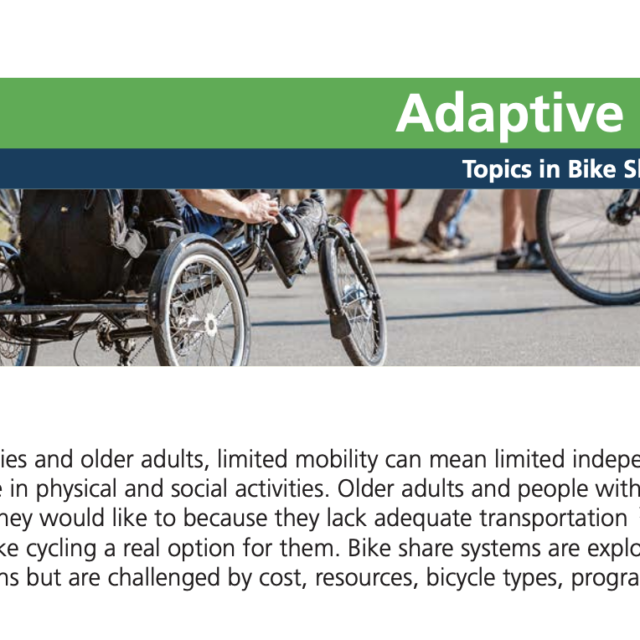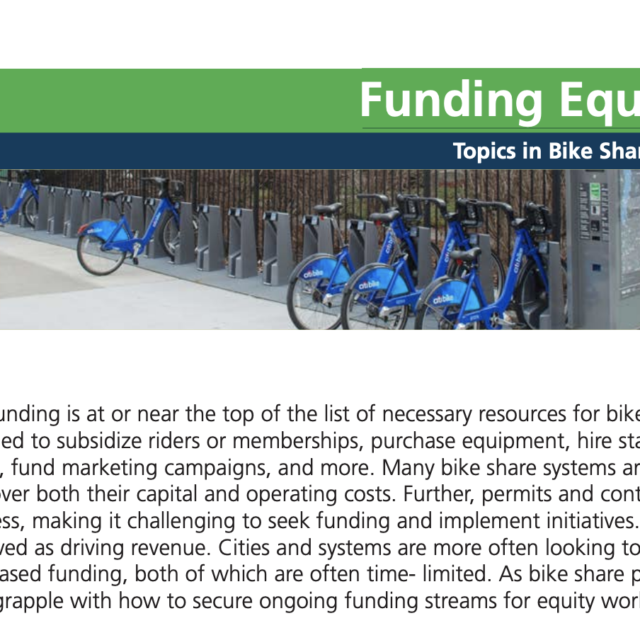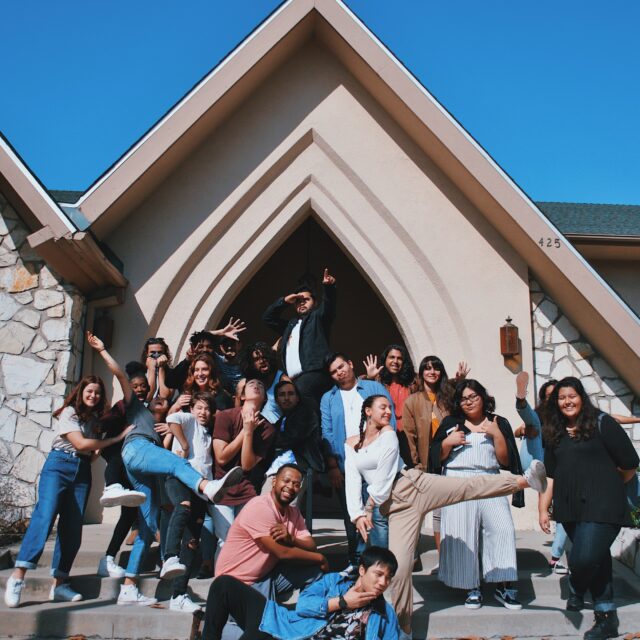New Webinar: Best Practices & Lessons Learned of the National Scan of Bike Share Equity Programs
by Farrah Daniel, Better Bike Share Partnership Writer
September 25, 2020
Check out the webinar recording!
On September 16, researchers of Portland State University (PSU) held a webinar based on a report titled the National Scan of Bike Share Equity Programs, which was funded by the Better Bike Share Partnership and the National Institute for Transportation and Communities (NITC) and conducted at PSU.
The speakers:
- John MacArthur is the Sustainable Transportation Program Manager for the Transportation Research and Education Center (TREC), where he focuses on low- or no-emission vehicle infrastructure in the Portland metro area, as well as a climate change impact assessment for surface transportation in the Pacific Northwest and Alaska.
- Nathan McNeil is a research associate at the Center for Urban Studies at Portland State University, who conducts research around impacts of new bicycle infrastructure and programs including carsharing and bike share, and the connection between land-use and transportation.
- Adriel Thornton, MoGo Detroit’s Director of Marketing & Community Outreach, uses his expertise in community relations to execute community interactions, events and representational opportunities that propel the MoGo brand forward.
Together, they led the 60-minute webinar that explored several topics, such as background on MacArthur and McNeil’s equity scan research and lessons learned from the process, as well as what Thornton has learned about providing bike share during a pandemic.
The Research
The National Scan of Bike Share Equity Programs report was conducted by Portland State University, and the process consisted of a nationwide scan on what programs and initiatives were running to address equity in bike share. The final report shares data and responses from more than 70 bike share systems across the country.
Researchers believe their resource can “help cities and operators navigate the range of actions that have been implemented to make bike share systems more equitable, examine successful strategies employed across the U.S. and understand how those successes (and challenges) are being measured and articulated.” Plus, they hope the learned experiences of other systems shared in this report inspires others to innovate and more quickly move toward greater equity.
For this webinar, Thornton joined to provide the perspective of a bike share operator and discussed what he and his MoGo Detroit team learned, the best practices they discovered as well as what he envisions for the future of bike share equity programs.
The Webinar
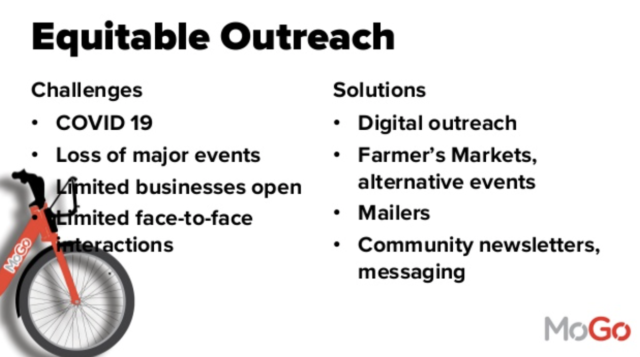
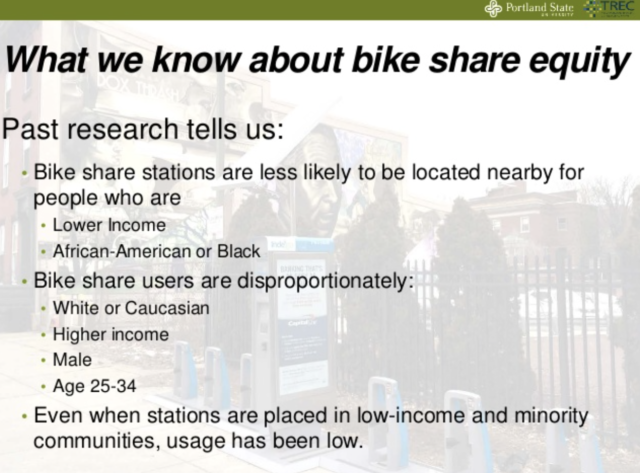
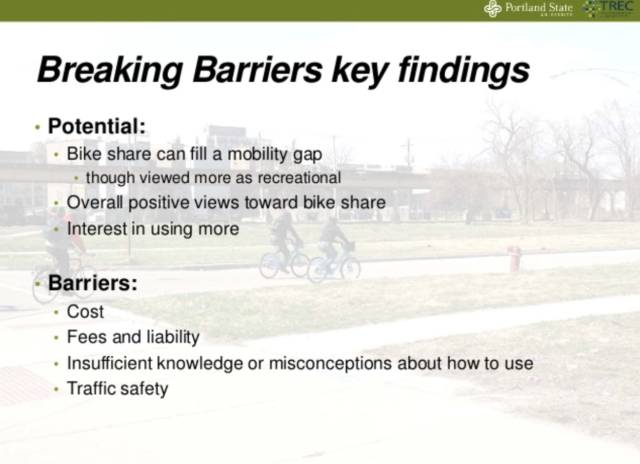
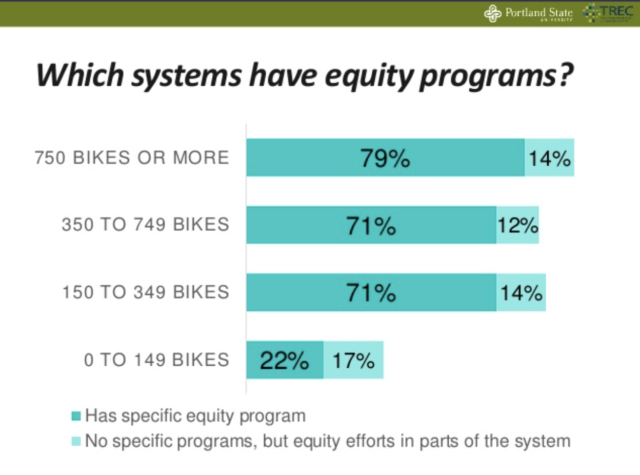
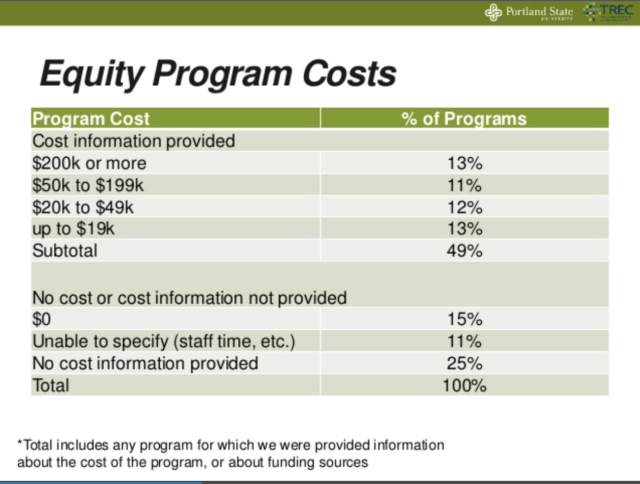
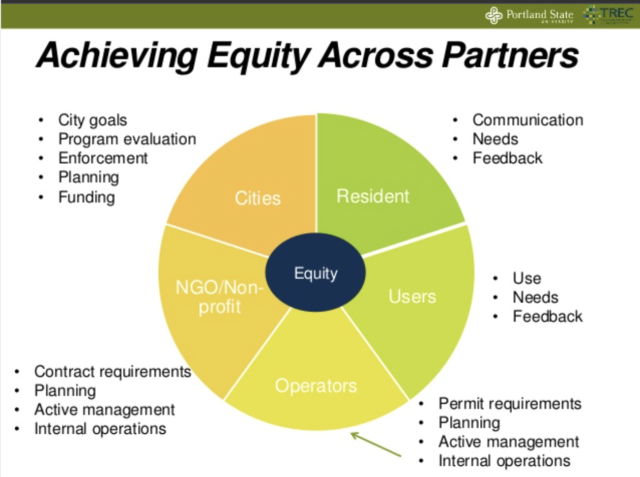
Source: Screenshots from the webinar
Although we recommending watching the full webinar above, here are some important highlights:
- Between 2015 and 2017, researchers McNeil and MacArthur studied bike share equity programs in Philadelphia, New York and Chicago; a project that included surveying residents in underserved communities as well as bike share operators. Some key findings of barriers to the access and use of bike share are costs, fees and liability, traffic safety, and insufficient knowledge about how to use bike share.
- The researchers shared data from their nationwide equity scan showing which bike share systems have equity programs (shown above) — of those programs, 56% target low-income people, 34% target specific neighborhoods or areas, 22% target specific racial or ethnic groups, 15% target people of all abilities, and 16% target other populations.
- Some of MoGo Detroit bike share’s creative solutions to the effects of COVID-19 include digital outreach, community newsletters and messaging, and alternative socially-distanced events that adhered to safety regulations.
Watch the recording to hear what the researchers learned about equity program costs and funding sources, how to achieve equity across system partners, the importance of data collection and much more. You can also check out the 10 2-page bike share briefs created by the PSU researches to distill their most important findings!
The Q&A Segment
1. Question: Does the report discuss the selection of bike station locations? How do programs look at demographic data in selecting locations?
👉 Answer: The report (although not the briefs) does cover station locations and areas.
2. Question: For a city that wants to launch an equity-oriented bike share program at the same time that scooter operators are coming to town, what are the main things to consider to ensure equity across both bike and scooter modes?
👉 Answer: One way we heard cities working with private vendors to promote equity was to ensure it is built into the operating agreement.
👉 Answer: We do have a brief on the topic. Key issues are availability, access to the devices, cost-per-ride and education. Often, scooter rides are not bike share users so they can complement service.
— — — — — — —
Watch the recording above to see the full webinar! And don’t forget to share your thoughts with us on Facebook, Twitter and Instagram.
The Better Bike Share Partnership is a JPB Foundation-funded collaboration between the City of Philadelphia, the Bicycle Coalition of Greater Philadelphia, the National Association of City Transportation Officials (NACTO) and the PeopleForBikes Foundation to build equitable and replicable bike share systems. Follow us on Facebook, Twitter and Instagram or sign up for our weekly newsletter. Story tip? Write farrah@peopleforbikes.org

